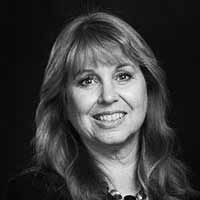This article is a written transcript of the course, “Counseling in Communicative Disorders: Putting the Person First”, presented by Shari Robertson, Ph.D., CCC-SLP on May 5, 2011.
Communication access realtime translation (cart) is provided in order to facilitate communication accessibility and may not be totally verbatim. The consumer should check with the moderator for any clarifications of the material.
>> Amy Hansen: Good afternoon and welcome to today's Expert e-Seminar, “Counseling in Communicative Disorders: Putting the Person First” presented today by Dr. Shari Robertson. Dr. Shari Robertson is a Professor of Speech-language Pathology and Associate Dean for Graduate Studies and Research at Indiana University of Pennsylvania. Prior to obtaining her Doctorate at University of Wisconsin-Madison, which included a minor in counseling, she was a school-based SLP and special education supervisor for 16 years. Dr. Robertson is well-known on her workshops in a variety of topics and bridging the gap between research and clinicians. Welcome, Shari, and thank you so much for joining us today.
[Applause]
>> Dr. Robertson: Well, I'm just delighted to be here and it is nice to see all of you in cyberspace so to speak. I would invite you at any time to be sure to ask questions. I'm happy to answer them as best that I can. We only have what I consider a short amount of time for a lot of information so I will be moving right along but I'm always happy to stop.
Why Counseling?
So with that we're going to move on and delve right into the first question that is often asked of me is, why do we need to talk about counseling and speech-language pathology? I'm guessing because you're here perhaps that is not your question but I actually have a colleague who often would stop me in the hall and say, “You know, Shari, if I could just take the voice out of the person and work on just the voice, I could get so much more done but the person always seems to get in the way.” I have to tell you that that kind of floored me the first time she said that. She said to me, “You know, I just can't get into that touchy-feely stuff, that ‘people’ stuff. I really just want to work with the disorder.” And, so, I hauled her in one day to my counseling class. I'm actually lucky enough to be able to teach a class to our speech-language pathology majors in the summer on counseling within communicative disorders.

